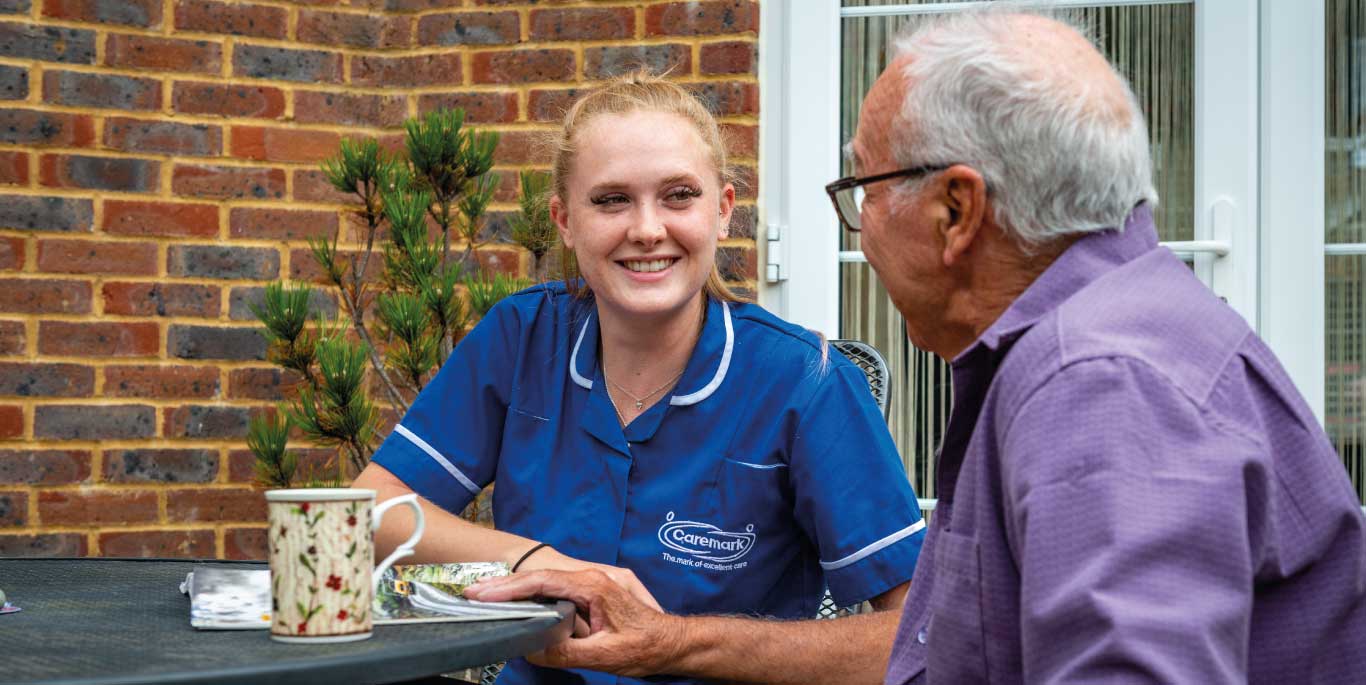Alzheimer’s and Dementia Care
Dementia & Alzheimer’s Care
Helping you stay close to your memories with our Alzheimers care services
Caremark can support you or your loved one to live in your own home, the way you want to, for as long as you want to!
Personalised Care Plans
We take the time to get to know your needs, preferences and habits to ensure we create a bespoke plan that ticks all the boxes. Whether you require assistance with medication reminders, or simply a cheery smile at your doorstep, we are here to help!
Regular Inspections
All of our offices are registered with the CQC, a regulatory system that ensures social care services provide people with safe, effective, compassionate, high-quality care.
Qualified Care Assistants
Our care assistants undergo rigorous DBS checks and comprehensive training before providing care. You can trust them to deliver exceptional, personalised care with compassion and expertise.

Dementia & Alzheimers Care: We Understand!
When someone you love is living with Dementia, including Alzheimer’s disease, vascular dementia, Lewy body dementia, frontotemporal dementia and mixed dementia, it can be a very upsetting time.
Helping someone you love to cope with the challenges that come with dementia and memory loss can be upsetting.
We’re here to offer dementia & alzheimers care support, advise and reassurance. Our professional and fully trained Care Assistants have plenty of knowledge and experience to share. They come armed with skills to make customers feel calm and at ease as well as reassuring family members too.
The most effective cure: Familiar surroundings
Familiarity, regular routines and being cared for at home can slow the progression of many common dementia symptoms.
We come equipped with knowledge on dementia & alzheimers care and impart this knowledge onto you.
We can also let you know about outside resources including support networks and local dementia groups that you might find helpful.
And if you’re in need of a break yourself, we offer a full Respite Care service.
Please note not all Caremark offices offer this service. Please make contact with your local office to find out more.


Dementia & Alzheimers Care: How We Help
Our aim is to give everyone living with the many subtypes of Dementia, including Alzheimer’s disease, a high quality of life in surroundings they know and feel comfortable in.
There are multiple different strains and stages and our Care Assistants work with you, specialists and extended care teams to create a tailored alzheimers care plan.
We go above and beyond to understand your loved one’s personality, history and personal preferences. We can help with personal care, social activities, memory impairment, shopping, cooking, cleaning and mobility support to name a few.
Why stay at home?
Being at home helps people to retain their independence and can help slow the process. Changes in routine and environment have been shown to have a detrimental effect, whilst being looked after at home, in safe, comfortable surroundings provides enormous reassurance, which can help stabilise and slow the progression of many of the symptoms.
Providing Dementia & Alzheimers Care at Home has many advantages over residential care as it allows the person to stay in familiar surroundings alongside their loved ones for as long as possible.

“I don’t normally write reviews, but I have to say Caremark has been a huge help with my mum, who sadly has dementia. I tried a care home, but it made her very upset and stressed.
Since moving back home and having Caremark’s care assistants support us, my mum has become calm and happy-go-lucky again. They’ve helped in every way possible, and that includes giving me peace of mind knowing Mum is safe 24/7. Overall, I’m very happy with Caremark’s service and how they’ve taken care of my mum.
Thank you, Caremark, for your exceptional service during such a difficult time.“
Gary W. (Son of Customer)
“Caremark has been providing care for my Dad for the past twelve months.
We are very pleased with the quality and level of care he is receiving. The care assistants are friendly, caring, and considerate, and they ensure he has everything he needs.
The office is prompt to contact us in case of any issues and is always available to answer any questions.”
T. H. (Son of Customer)
“My mum has recently been diagnosed with Alzheimer’s.
A member of staff came to do the assessment at home and I was impressed from the get-go. I was then contacted by the managing director who was extremely supportive and helpful in setting up a care package within days and more importantly in time for me to fly on my holidays.
It was quite emotional when I saw Mum greet her care assistants with a hug as she was so pleased to see them. I can highly recommend Caremark if you are looking for home care. You can trust them with your loved ones 100% and feel reassured that any questions are handled quickly and professionally. I have my life back.”
Simon H. (Son of Customer)
Trained professionals
We are dedicated to ensuring our Care Assistants receive the very best in-depth training in Dementia Care.
Our specialist Care Assistants have been fully trained and use a range of approaches and techniques to reduce anxiety, provide reassurance and calm behaviours, reducing feelings of confusion and anxiety as well as helping with everyday life.
People living with dementia can find it hard to communicate and therefore often experience frustration. Our Care Assistants know how best to communicate and ensure people feel at ease.
There’s so much more to know…
For more information on Dementia, including Alzheimer’s disease click below.